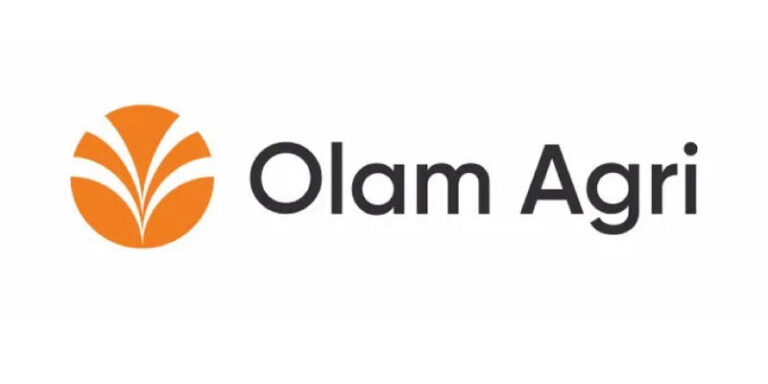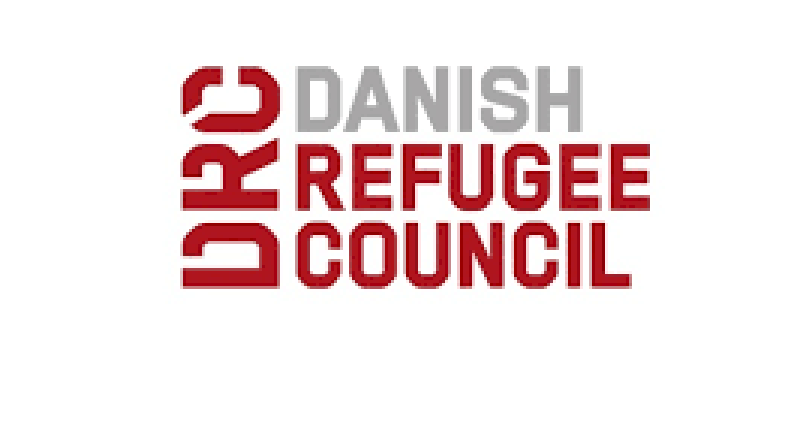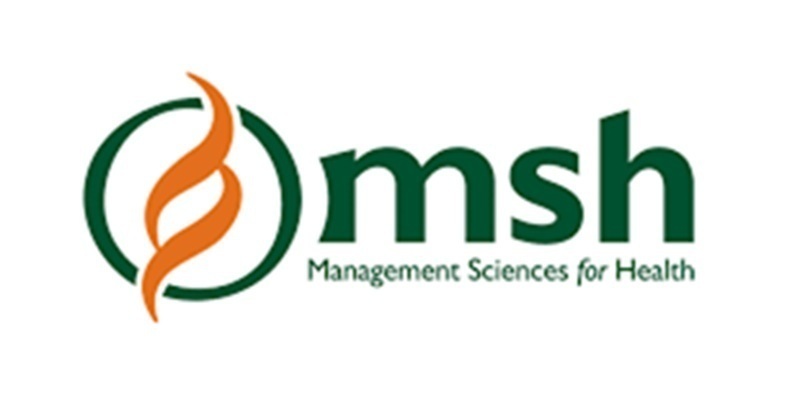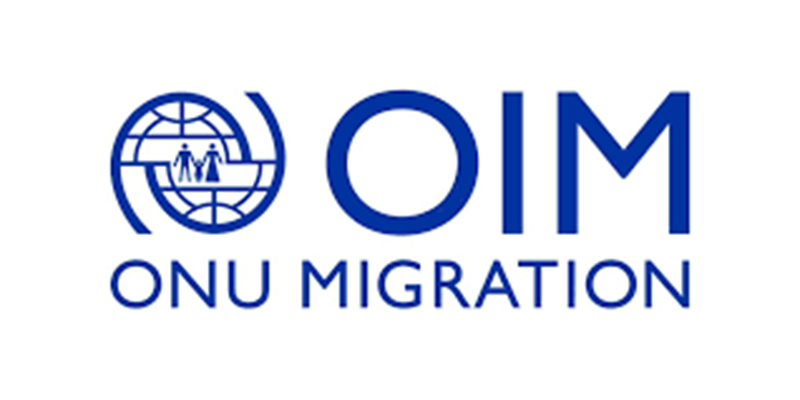Le Programme alimentaire mondial (PAM) des Nations unies, une organisation humanitaire très prestigieuse, réputée et la plus importante au monde, sauve des vies dans les situations d’urgence et utilise l’aide alimentaire pour ouvrir la voie à la paix, à la stabilité et à la prospérité pour les populations qui se remettent d’un conflit, de catastrophes et de l’impact du changement climatique.
Au PAM, les personnes sont au cœur de tout ce que nous faisons et la vision de la future main-d’œuvre du PAM est celle d’équipes diverses, engagées, qualifiées et très performantes, sélectionnées au mérite, opérant dans un environnement de travail sain et inclusif, vivant les valeurs du PAM (intégrité, collaboration, engagement, humanité et inclusion) et travaillant avec des partenaires pour sauver et changer la vie de ceux que le PAM sert.
Pour en savoir plus sur le PAM, visitez notre site web : Programme alimentaire mondial des Nations unies (PAM) et suivez-nous sur les médias sociaux pour être au courant de nos dernières nouvelles : YouTube, LinkedIn, Instagram, Facebook, Twitter.
POSTE 1
Soutien aux moyens de subsistance
Job Title: Livelihoods programming.
Duration: 11 months (Renewable)
Post Grade: CSLT I
Duty Station: Tamale
BACKGROUND AND JOB PURPOSE:
The United Nations World Food Programme with the kind support of the Government of Japan is facilitating implementation of a sustainable nutrition project that leverages livelihoods, Social and Behaviour Change Communication (SBCC) and food support to build resilience of vulnerable populations to food and nutrition insecurity in Karaga district. The district is the second most food insecure in Ghana, according to the 2020 Comprehensive Food Security and Vulnerability Analysis.
The project seeks to draw synergies with the government’s social safety net programmes for maximum impact by targeting LEAP beneficiaries and vulnerable women, children and adolescent girls on the Ghana National Household Registry. It also highlights the critical role of Public-Private Partnerships in addressing malnutrition in Ghana.
Targeted beneficiaries will receive food assistance through value vouchers.
In addition, Mother-to-mother and father-to-father support groups will be formed as a platform for nutrition and health education.
Some of these beneficiaries or eligible adults in their households will also be supported in the production of diversified nutritious crops. To increase productivity and prevent post-harvest losses, beneficiaries will also be supported with farm inputs.
Market linkages will be created or strengthened between the smallholder farmers and commercial buyers to motivate them to cultivate crops all year round.
Crops produced by beneficiaries will be part of the food basket for the voucher programme to provide direct market and further improve dietary diversity and micronutrient intake.
Results from a needs assessment will inform the selection of beneficiaries for other income-generating initiatives apart from nutrition-sensitive agriculture. Beneficiaries will be equipped with the requisite skills for a start-up or expansion of existing livelihoods. Beneficiaries will also be introduced to transformative Village Savings and Loans Associations (VSLAs) to pool resources as an alternative source of income.
WFP is soliciting the services of a consultant to support the implementation of the livelihoods programme, which will be led by a local Non-governmental Organization (NGO).
MAJOR DUTIES AND RESPONSIBILITIES
Under the overall supervision of the Head of Sub-Office in Tamale, the Consultant will be expected to perform the following duties:
- Liaise with the NGO to set milestones, implement and follow-up on specific activities under the livelihood initiative.
- Propose innovative ways of delivering the livelihood support, including digitalization of VSLAs to ensure digital financial inclusion of beneficiaries
- Monitor progress of implementation and offer technical support to the NGO as required
- Work closely with designated research institutions in designing appropriate methodologies for evaluating the livelihoods component of the project.
- Follow-up for timely submission of reports from NGO, review the reports and provide feedback to NGO and WFP teams.
- Collaborate with WFP’s Research, Assessment, Monitoring and Evaluation (RAME) team for timely and accurate data entry into corporate databases.
- Any other tasks as identified by the Head of Sub-Office or Deputy Country Director.
Minimum Academic Qualifications
- The candidate shall have an advanced University degree in Agricultural Science, Agricultural Economics, Nutrition, Community Development, or a related field.
- A first degree with additional years of professional experience is acceptable
Desired Experiences for Entry into the role:
- Minimum of three years’ experience working in agriculture, food systems, nutrition-sensitive or related activities
- Experience working in a developing country is an advantage
- The candidate must be willing to work in a diverse team, innovative and versatile.
- Must have strong IT skills to support project delivery
- Previous role in managing women economic empowerment and digital financial inclusion initiatives is highly desirable
- Experience working with a United Nations Agency, or an international humanitarian and/or development organization is desirable
Language:
- Fluency in the English language is essential
- Japanese native speaker, desirable
Applicants should submit their applications and CV stating 3 references online to: www.wfp.org/careers/job.openings and follow the steps.
POSTE 2
Responsable de la politique des programmes
Job Title: Programme Policy Officer CBT (LEAP)
Duration: 11 Months
Post Grade: Consultant Level II
Duty Station: Accra
JOB PURPOSE:
The United Nations World Food Programme (WFP) is the world’s largest humanitarian agency fighting Hunger worldwide. The mission of WFP is to help the world achieve Zero Hunger in our lifetimes. Every day, WFP works worldwide to ensure that no child goes to bed hungry and that the poorest and most vulnerable, particularly women and children, can access the nutritious food they need.
Through its Country Strategic Plan (201 9 – 2023), WFP’s role in Ghana is an enabler, consistent with the Government of Ghana’s vision of self-reliance articulated in the Ghana Beyond Aid (GBA) and the Ghana COVID-19 Alleviation and Revitalization of Enterprises Support (Ghana CARES) Obaatanpa Programme, to revitalize the economy, given the impact of COVID-19, and accelerate attainment of the Ghana Beyond Aid agenda.
Specifically, activities have been designed to enhance food systems and value chains; strengthen private-sector capacity to produce affordable, safe, and accessible nutritious food for both domestic and regional markets; create demand for nutritious products through public-private partnerships; build awareness and stimulate demand for the consumption of nutritious foods through social and behaviour change communication and enhance accessibility and affordability through market development initiatives. Furthermore, WFP is contributing to enhancing the capacity of national systems in early warning, disaster preparedness and response; and supports social protection programmes that respond to the needs of vulnerable populations:
MAJOR DUTIES AND RESPONSIBILITIES
- Support the operationalization of the Ghana Country Office Social Protection strategy
 specifically defining medium and longer-term engagement with the Government of Ghana and development partners on systems strengthening to enhance the effectiveness of LEAP.
specifically defining medium and longer-term engagement with the Government of Ghana and development partners on systems strengthening to enhance the effectiveness of LEAP. - Coordinate closely with MOGCSP and other development partners through the Social Protection Sector Working Group and Development partner group. WFP is a member to support efficient, effective, and timely implementation and monitoring of the LEAP programme.
- Channel CBT technical expertise, lessons from the Bill and Melinda Gates Funded initiative, and objectives and findings from LEAP re-assessment to promote inclusion, improve the operational environment, promote financial inclusion, and facilitate the exit of participants to productive livelihood activities.
- Enhance information management and support evidence generation on LEAP and social protection broadly and ensure dissemination and integration into appropriate capacity strengthening and policy coherence support.
- Provide technical advice to aid effective representation of WFP at policy dialogues with Government and Partners on LEAP and Social Protection more broadly.
- Establish and maintain operational partnerships to identify opportunities for collaborative approaches and initiatives that improve service delivery and support advocacy work for LEAP in Ghana.
- Coach, mentor, and guide National Programme Officer for CBT, including enhancing their role as secretariat to the CO Cash Working Group.
- The Programme Policy officer may also be brought to carry out other tasks according to the priorities defined by Management.
Minimum Academic Qualifications
BA/Master’s level in political science, development, population health, emergency management and/or relevant fields Experience.
Desired Experiences and skills for Entry into the role:
- 8 to 10 years of progressive experience with UN, NGOs and/or international organizations.
- UN or donor experience, especially with WFP and/or UNICEF, FCDO or World Bank
- A sound understanding of policymaking processes and the ability to provide operationally relevant recommendations/lessons for governments and other partners.
- Planning and programming skills.
- Strong capacity for analysis, learning, research and innovation.
- Strong writing, presentation, and communication skills.
- Capacity to foster strong cross-agency collaboration.
- Good leadership and interpersonal skills.
Language: Fluency and good command of oral and written English language is essential
POSTE 3
Programme et politique – Consultant en partenariat externe
Job Title: Programme& Policy -External Partnership Consultant
Duration: 6 Months (Renewable)
Post Grade: Consultant LeveII
Duty Station: Accra
JOB PURPOSE:
The World Food Programme (WFP) is the world’s largest humanitarian agency fighting hunger worldwide. In 2021, WFP enhanced the lives and livelihoods of marginalized and vulnerable people in Ghana, enabling them to improve their food security and nutrition status. WFP achieved these gains through leveraging partnerships with the government and the private sector. WFP Ghana also supported national capacities in providing socioeconomic response following the COVID-19 pandemic, improving food systems for food security and nutrition, and supporting national efforts to improve disaster management and early warning. WFP engaged in pilots, assessments, and training to generate evidence for poverty reduction solutions. The programme and policy consultant will support the country office in researching, analyzing, and reporting on scalable food system innovations and models in Ghana. He/she will lead the development and drafting of concept notes to guide WFP action across key strategic value chains within the country.
MAJOR DUTIES AND RESPONSIBILITIES
- Support the research, drafting and development of concept notes, proposals, and policy briefs to deliver the country’s strategic plan, in line with the government of Ghana and partner priorities.
- In collaboration with WFP relevant units and food system players in Ghana, other private sector players and external R&D actors, identify and map good and promising local and external practices, innovations, and models with scalability in Ghana and West Africa. Support efforts to strengthen government capacities to respond to smallholder needs and develop food system solutions, including food loss and waste prevention, sustainable food processing and packaging and smallholder market access. Support the development of models, analysis and strategies that are appropriate to Ghana’s food systems and resilience building.
- Support the country office and senior management with the production of key messages, speeches, and presentations.
- Support the relevant units with the coordination and drafting of the 2022 ACR. Support organization-wide activities to strengthen relationships with the government and mobilize support to advance WFP’s goals and objectives.
Minimum Academic Qualifications
Advanced University degree in Development, Political Science, Economics, Statistics, Information Management or Journalism, Business Management, Social Sciences or other relevant field, or First University degree with additional years of related work experience and/or training/courses.
Desired Experiences and skills for Entry into the role:
- Typically, five years or more of postgraduate professional experience in a relevant field of work, with a background and interest in international humanitarian development.
- Specialized knowledge of food systems, policy communication, partnerships with some understanding of resource mobilization.
- Strong written and oral communication skills, including substantive analysis and report writing skills.
- Able to supervise and support more junior and/or less experienced members of the team.
- Knowledge of, or the ability to quickly assimilate, UN/WFP specific processes and systems.
Language: Fluency and good command of oral and written English language is essential





